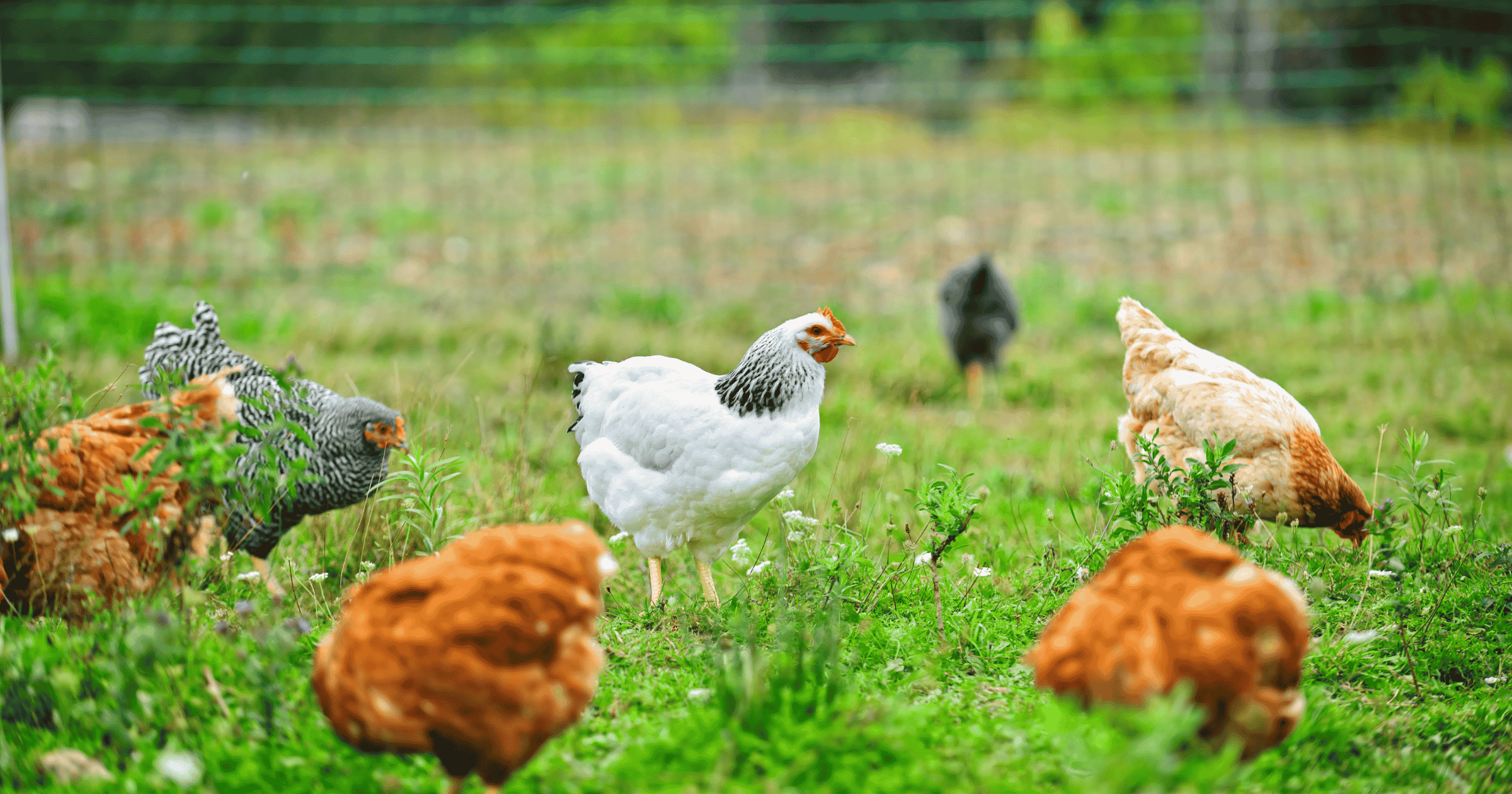
08 Apr Benefits of Pasture-Raised Eggs in Tropical Regions | Fresh, Healthy, and Sustainable Eggs
As more consumers prioritize health, sustainability, and ethical practices in their food choices, pasture-raised eggs are becoming increasingly popular, especially in regions with favorable climates. In tropical regions like Nigeria, where sunlight and lush green landscapes are abundant, the conditions are perfect for raising pastured chickens that produce healthier, more nutritious eggs.
In this article, we’ll explore the benefits of pasture-raised eggs in tropical regions, including their nutritional advantages, ethical farming practices, and environmental sustainability. Whether you’re a consumer looking to make better choices for your health or a farmer interested in sustainable poultry farming, this guide will provide you with valuable insights into why pasture-raised eggs are an excellent option in tropical climates.
What Are Pasture-Raised Eggs?
Pasture-raised eggs come from hens that are allowed to roam freely on open pastures, where they can engage in natural behaviors like foraging, dust bathing, and socializing. These eggs are a stark contrast to conventional factory-farmed eggs, where hens are often confined to small cages with little access to the outdoors.
Pasture-raised chickens are typically fed a more natural diet of grass, seeds, bugs, and worms, which is supplemented by high-quality poultry feed. This diet and lifestyle contribute to the overall healthier and more flavorful eggs produced in pasture-raised systems.
Why Pasture-Raised Eggs Are Ideal for Tropical Regions
Tropical regions, with their warm climates and abundant natural resources, are particularly well-suited for pasture-based poultry farming. Here are several reasons why pasture-raised eggs thrive in tropical areas:
1. Ideal Climate for Free-Range Hens
The warm climate and abundant sunlight in tropical regions provide an excellent environment for raising free-range hens. Chickens that have access to outdoor spaces with plenty of green grass and natural forage are healthier and more active. The warm weather also means that the chickens can spend more time outdoors, which supports their natural behaviors and contributes to better-quality eggs.
2. Rich Forage for a Balanced Diet
Tropical regions often have diverse vegetation, providing an abundant source of forage for hens. In these areas, hens can graze on grass, plants, and insects, which contributes to a more nutritious diet compared to conventionally fed chickens. This diet, full of natural nutrients, results in richer, healthier eggs with more omega-3 fatty acids, vitamins, and minerals.
3. Reduced Risk of Disease in Outdoor Systems
The outdoor environment in tropical regions helps reduce the risk of diseases often associated with confinement in factory farms. In contrast to crowded indoor spaces, hens raised on pasture are less likely to suffer from respiratory issues or infections commonly seen in factory-farmed chickens. Furthermore, the access to clean air, sunlight, and open space helps keep the hens healthier, leading to higher-quality eggs.
Benefits of Pasture-Raised Eggs in Tropical Regions
Now that we understand why tropical climates are ideal for pasture-raised eggs, let’s dive into the specific benefits these eggs offer, especially for consumers in tropical regions like Nigeria.
1. Higher Nutritional Value
Pasture-raised eggs are generally more nutritious than their factory-farmed counterparts. The free-range diet that hens have access to in tropical climates leads to eggs that are:
- Rich in Omega-3 fatty acids: Eggs from pasture-raised hens are higher in omega-3s, which are essential for heart and brain health.
- Higher in vitamins: These eggs contain more vitamin D, which is crucial for immune system function, and vitamin E, which acts as a powerful antioxidant.
- Increased antioxidants: The diet of free-range chickens, which includes access to plants and insects, increases the antioxidant levels in the eggs, helping fight oxidative stress in the body.
- More protein and less cholesterol: Pasture-raised eggs tend to have a higher protein content and lower cholesterol than conventionally raised eggs, making them a better option for individuals watching their cholesterol intake.
2. Better Flavor and Quality
One of the key reasons consumers choose pasture-raised eggs is for their superior flavor. Eggs from free-range hens have a richer, more distinct taste than those produced by hens raised in confined spaces. The natural diet of grass and insects contributes to a deeper, more complex flavor profile, which is often described as creamy, fresh, and more satisfying.
The quality of the egg’s yolk is also typically richer and more vibrant, often showing a deeper yellow or orange color, which is a sign of higher nutritional content.
3. Ethical and Humane Farming Practices
Consumers are increasingly concerned about the ethical treatment of animals, and pasture-raised eggs offer a more humane alternative to conventional factory-farmed eggs. Hens raised on pasture have access to natural environments where they can roam freely, dust bathe, and exhibit their natural behaviors, leading to better overall well-being.
In tropical regions, the warm climate and natural resources make it easier to practice ethical and humane farming without the need for restrictive cages or inhumane conditions. This aligns with the growing demand for ethical products that consumers feel good about purchasing.
4. Environmental Sustainability
Pasture-raised egg farming is generally more sustainable than conventional egg farming. In tropical regions, raising hens on pasture has several environmental benefits:
- Reduced waste: The chickens contribute to the ecosystem by eating insects, weeds, and plants, and their waste serves as natural fertilizer for the land, promoting soil health.
- Lower carbon footprint: Pasture-based systems use fewer resources and rely on natural feed sources rather than relying on factory-farming systems that are heavily reliant on industrial feed and energy-intensive operations.
- Biodiversity support: Pasture-raised farming encourages the growth of biodiverse ecosystems, benefiting both the animals and the environment.
5. Healthier Chickens and Better Animal Welfare
The health and well-being of the hens is significantly improved in pasture-raised systems. In tropical climates, where open space is abundant, hens have more opportunities to forage, engage in natural behaviors, and enjoy a better quality of life. This leads to healthier chickens that are less stressed and more resilient to diseases.
By choosing pasture-raised eggs, consumers are supporting farming practices that prioritize animal welfare and sustainable agriculture, which is beneficial for both the animals and the environment.
How Pasture-Raised Eggs Benefit Local Farmers in Tropical Regions
In addition to the benefits for consumers, pasture-raised eggs also provide significant advantages for local farmers in tropical regions:
- Lower feed costs: Chickens that are allowed to forage naturally can supplement their diet with grass, seeds, and bugs, reducing the amount of purchased feed required.
- Improved farm biodiversity: By practicing pasture-based farming, farmers can encourage a more diverse ecosystem on their farms, leading to healthier soil and crops.
- Market demand: As consumers become more conscious about their food choices, there is a growing market for sustainably produced products, including pasture-raised eggs. Local farmers can take advantage of this demand by offering high-quality, eco-friendly eggs to consumers.
Conclusion: Embrace Pasture-Raised Eggs for Health and Sustainability
In tropical regions like Nigeria, pasture-raised eggs offer numerous benefits, including better nutritional value, improved flavor, ethical farming practices, and environmental sustainability. The warm climate and abundant natural resources make tropical areas ideal for pasture-based poultry farming, leading to healthier chickens and higher-quality eggs.
By choosing pasture-raised eggs, consumers can enjoy a healthier diet, support humane farming practices, and contribute to a more sustainable and eco-friendly food system. Whether you’re a consumer looking for nutritious eggs or a farmer considering pasture-raised poultry farming, the benefits of these eggs are clear.e water test or shake it up before you fry it up!
Recent posts
- How to Make Akara and Moi Moi with Farm Eggs | Delicious Nigerian Recipes
- How to Make Perfect Omelettes with Farm Eggs | Easy, Delicious Recipe
- Easy Egg Salad Recipes with Farm Fresh Eggs | Delicious & Nutritious
- Deviled Eggs with Local Nigerian Ingredients | Easy Recipe
- Delicious Nigerian Dishes Made with Eggs | Tasty Egg Recipes
Your cart
Your cart is currently empty!








No Comments